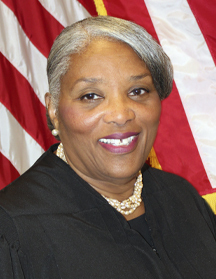CHARLESTON – A federal judge has dismissed a lawsuit that sought to keep former President Donald Trump off the West Virginia ballot in next year’s primary.
In her December 21 ruling, U.S. District Judge Irene Berger said the case filed by John Anthony Castro from Texas lacked standing. Castro, who calls himself a presidential candidate, says Trump’s appearance on the ballot would harm his chances at victory.
Castro cited Section 3 of the Fourteenth Amendment to the U.S. Constitution, which would disqualify any who has engaged in insurrection or rebellion against the government. That section is the same one used earlier this week when the Colorado Supreme Court ruled Trump can’t appear on the ballot there.

Berger
| Courtesy photo
But Berger didn’t even examined that claim, saying the evidence removed “any doubt that Mr. Castro’s purported ‘campaign’ exists as a vehicle for pursuing litigation, not votes.”
“The plaintiff alleged that he is a candidate for the Republican nomination for president and anticipates being on the ballot in West Virginia,” Berger wrote. “His complaint contains few specific factual allegations related to his candidacy. …
“Castro’s complaint relies on supposition and speculation that if Mr. Trump were removed from the ballot, that his voters and contributors would default to other candidates including Mr. Castro. But he supplies no specifics to support the conclusion that Trump voters would become Castro voters if his suit was successful.”
West Virginia Attorney General Patrick Morrisey, whose office intervened in the case to work to dismiss it, praised Berger’s ruling.
“This is a big win for the integrity of our elections,” Morrisey said in a press release. “This lawsuit was frivolous to begin with and without merit — it had no basis in either law or fact.
“Any eligible candidate has the right to be on the ballot unless legally disqualified, and we will defend the laws of West Virginia and the right of voters and candidates to the fullest.”
Trump has posted two large victories in the general election in West Virginia. In 2016, he received 68.5 percent of the vote to Hillary Clinton’s 26.4 percent. In 2020, Trump received 68.6 percent of the vote over eventual winner President Joe Biden’s 29.7 percent.
Castro has filed similar lawsuits in 27 states. In October, the U.S. Supreme Court said it wouldn’t hear Castro’s case. His lawsuits have been dismissed in Florida, Rhode Island and New Hampshire. And he withdrew complaints in 12 other states.
Berger notes that Castro has no campaign offices or staff in West Virginia and hasn’t advertised in the state, adding he “has not met his burden of showing a concrete and particularized injury to him caused by Mr. Trump’s allegedly wrongful anticipated presence on the ballot, or that any injury would be redressed by precluding Mr. Trump’s appearance on the ballot.”
Castro criticized today’s ruling on social media.
“West Virginia Federal Judge Irene Berger declares that I’m running for President ‘in bad faith’ to ‘manufacture’ standing,” he wrote. “So if I was a corrupt POS running for President to enrich myself and corporate oligarchs, they’d find ‘good faith.’ But because I’m running for President based on my principles, they’re saying it’s in ‘bad faith.’”
Castro filed his case himself. Trump was being represented by Mark Adkins, Richie Heath and Will Lorensen of Bowles Rice in Charleston. Morrisey's motion was filed by Principal Deputy Solicitor General Michael R. Williams and by Deputy AG David E. Gilbert.
U.S. District Court for the Southern District of West Virginia case number 2:23-cv-00598
